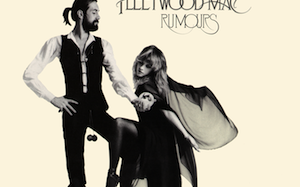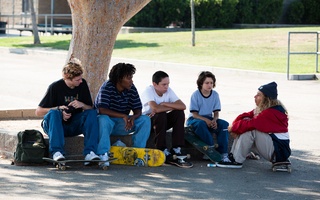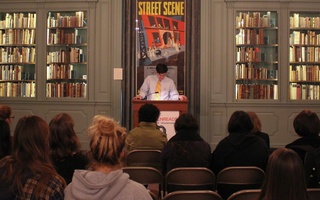{shortcode-b558e2bb11906d7de11729f7945158d9084e6400}
Jonah Hill is like that one rare high school teacher who vibes with his students in a strangely fraternal way, which is to say that he understands teenagers. In “Mid90s,” which he has written and directed, he captures their essence in their baldly honest, shameless delivery, their easily-injured pride, and their arbitrary sensitivities. In the 13-year-old Stevie, played with aching vulnerability by Sunny Suljic, there is a softness behind those shifty eyes. When his older brother Ian (Lucas Hedges) pressures him to take money from his mom’s drawer, he does it, but not after saying, more to himself than anyone else, “It just doesn’t feel right.” Inexplicably fatherless, Stevie wanders the museum of sublime adolescence, his brother’s off-limits room, examining Ian’s sneakers with the reverence paid a sanctified object. His toxic relationship with his brother leads him to fumble alone toward adulthood, as he attempts to perform his own understanding of heteromasculinity, stripping his walls to make room for a women’s restroom sign, among other things. The film is set in 1990s Los Angeles and ambles along slowly with Stevie and his initiation into a clique of older skateboarders, Ray (Na-kel Smith), Fuckshit (Olan Prenatt), and Fourth Grade (Ryder McLaughlin). But Stevie’s story is alone as interesting to watch as a touching but forgettable home video tape. While Hill achieves an uncommon degree of verisimilitude in his depiction of growing-up, he under-utilizes the peripheral characters and the potentially fascinating backstories that he hints at in dialogue but never investigates.
Hill nails the politics of teenage intimacy in group settings, the way bonds are sometimes formed through inarticulate confessions rather than vulnerable discussion, lest they let their insouciant facades crumble. Ray mentions the difficulties of being black when he says, “I feel like it’s a little extra heavy on me. People judge you and stuff,” and the boys share a silent moment before they recalibrate the tone of the conversation to their flippant humor. The dialogue feels real in the sense that serious matters are broached casually and dropped. It’s leavened with nonsensical affectations and jokes that wouldn’t be so funny except for the way his actors deliver their lines; Ruben, just as young and every bit as green as Stevie, lectures him on the unwritten rules of kicking it with the cool kids. Putting on airs, Ruben tells him, “I smoke, I fuck bitches. I’m livin’ the life.” In one of the most amusing scenes, Ray asks Stevie, who has long remained silent in fear that he might embarrass himself, “Did you know black people could get sunburnt?” Stevie sputters to devise a clever response but only manages a positively puzzling, “What are black people?” which earns Ray’s affectionate laughter. From then on he is known as “Sunburn.” As hard as Stevie tries to act tough, the child in him rats him out. One night, Stevie meets the older Estee (Alexa Demie) at a party — with whom he has his first sexual experience, a scene that is uncomfortable to watch — and she tells him wistfully, “You’re like, at that age before guys become dicks.” Stevie, with his endearing lack of self-awareness, alludes to an obviously fabricated tryst at Disneyland, on which he refuses to elaborate: “I don’t kiss and tell. I’m a gentleman.”
The most wrenching scenes are of physical violence, of Ian beating Stevie, with rage he never thinks to control and that Hill doesn’t think to explain. Stevie finally lashes out at Ian, calling him a “fucking lonely faggot,” before receiving a thrashing in return that pushes him over the edge. It’s a shame that Hill never plumbs the prodigious emotional range that Lucas Hedges drew on more productively in “Manchester by the Sea” and “Lady Bird.” While they play video games, Ian says off-handedly of their mother, “She was a lot different when I was a little kid than when you were a little kid…guys like that comin’ in and out all the time,” to which Stevie replies, “Fuck Mom.” Ian’s face crumples in muted disbelief at how Stevie’s changing, indicating for the first time a pensiveness that Hill never explores.
It seems that making a good film is easier than making an enjoyable one. Aesthetically, Hill’s movie seems to meet standards for a superficially impressive film. The soundtrack fit the mood of each scene: Wooden flute sounds with a bass undersong complement the languid confidence with which Fuckshit walks into a house party, as if he were listening to a pump-up soundtrack. When simmering tensions bubble over into fistfights, the camera channels a teenager’s gaze and romanticizes the fight scenes through a warm filter. Hill masterfully captures emotional expression in teenage idiom, which is to say, indirections, or what would in lesser films be heavy-handed, quotable platitudes. Ray declares, the inklings of disillusionment apparent in his face, “I’m trying to get out the hood and see shit,” and resolves to skateboard professionally. Fourth Grade dreams of making movies, but decides, with a resignation that’s tinged with a sense of doom, “I guess I’ll just go to work at the DMV with my dad.” Ray hints at their personal and unresolved problems obliquely, mentions that Fourth Grade is too poor to afford socks, and that his own younger brother was hit by a car and killed. The boys skateboard and idle for the entirety of the film, but who do they go home to? Not to mention Stevie and Ian’s intriguingly vacant and glaringly underdeveloped mother. It’s unfortunate that Hill teases with references to a more colorful universe of characters outside this stunted snapshot of a story, to the dynamics that would make his own central characters more complex. It’s unfortunate that it’s all talk.
—Staff writer Claire N. Park can be reached at claire.park@thecrimson.com.
Read more in Arts
Redefining Rock: ‘Electric Ladyland’ by The Jimi Hendrix Experience 50 Years LaterRecommended Articles
-
$25,000 Raised, DKE Searches for HouseAlumni of other chapters of fraternity Delta Kappa Epsilon, as well as DKE international, have given the colony most of the funds raised so far.
-
 Career Overview: Fleetwood Mac
Career Overview: Fleetwood Mac -
 'Rumours': The Greatest Breakup(s) Album
'Rumours': The Greatest Breakup(s) Album -
 The Cast of ‘Mid90s’ Discuss Their Journey, On and Off-Screen
The Cast of ‘Mid90s’ Discuss Their Journey, On and Off-Screen -
 Marathon Reading of 'Frankenstein' Revisits Novel 200 Years Later
Marathon Reading of 'Frankenstein' Revisits Novel 200 Years Later













